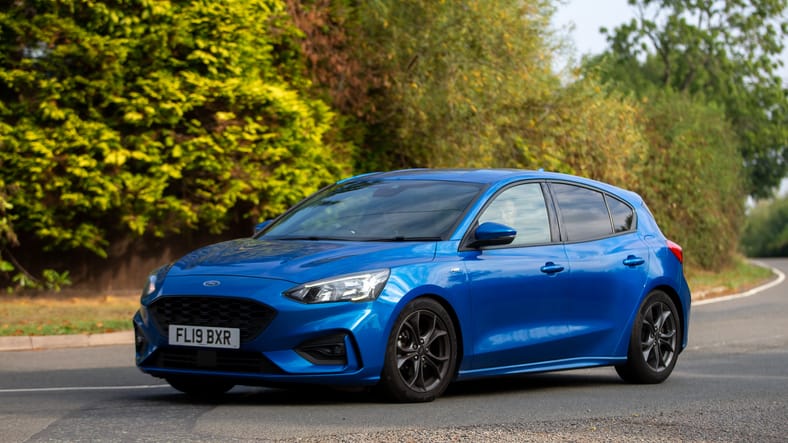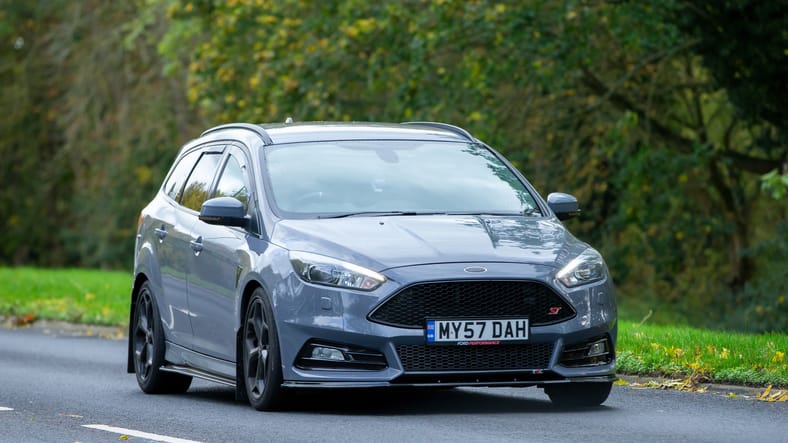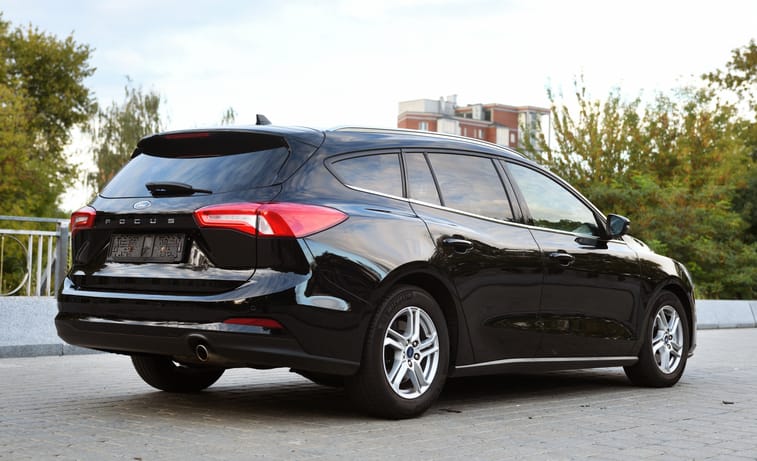Ford Focus Electric: A Pioneering Hatchback in the EV Landscape

The Ford Focus Electric, a five-door hatchback, carved its niche in the early days of electric vehicles (EVs). Produced from December 2011 to May 2018, it served as Ford's second foray into all-electric vehicles, following the Ford Ranger EV. While no longer in production, the Focus Electric holds a significant place in the evolution of electric cars, offering valuable insights for the current EV market.
Standing on the Shoulders of Giants: The Focus Electric's Foundation
The Focus Electric wasn't a radical design. It cleverly utilized the existing platform of the third-generation gasoline-powered Ford Focus. This approach offered several advantages. Ford could leverage their established manufacturing infrastructure, reducing development costs. Additionally, the familiar form of the Focus would likely resonate with existing Ford customers considering an EV.

Early Steps: Battery Range and Performance
The 2011 model year Focus Electric came equipped with a 23 kWh lithium-ion battery pack. This translated to an EPA-estimated range of 76 miles (122 km), a respectable figure for the time. Power came from a single electric motor delivering the equivalent of 143 horsepower and 184 lb-ft of torque. While not a powerhouse, it provided adequate pep for city commutes and everyday errands.
A Focus on Everyday Functionality
The Focus Electric prioritized practicality. The hatchback design offered a decent cargo area, especially with the rear seats folded down. The interior, while not featuring the most luxurious materials, provided a comfortable and familiar environment for drivers accustomed to gasoline-powered Foci. The car was also packed with features like SYNC, Ford's infotainment system, making the transition to an EV a smoother experience.
Addressing Range Anxiety: The 2017 Update
A significant upgrade came in the 2017 model year. Ford addressed a major concern for early adopters of EVs: range anxiety. By equipping the Focus Electric with a larger 33.5 kWh battery pack, the EPA-estimated range jumped to 115 miles (185 km). This improvement provided more confidence for electric driving, allowing for extended commutes or weekend getaways without the constant worry of running out of charge. Additionally, the 2017 update offered DC fast-charging capability, significantly reducing charging times at compatible stations.
Charging Considerations: Home and Away
The Focus Electric offered multiple charging options. Plugging into a standard 110-volt outlet provided a slow but convenient charging solution at home. However, this method resulted in lengthy charging times, upwards of 30 hours. Upgrading to a 220-volt outlet significantly reduced charging times to around 5.5 hours. Public DC fast-charging stations offered the fastest option, potentially replenishing the battery up to 80% within 30 minutes.
The Focus Electric: A Legacy of Innovation
Despite its discontinuation in 2018, the Ford Focus Electric holds a significant place in automotive history. It served as a stepping stone for Ford's electrification journey, paving the way for future models like the Mustang Mach-E. The Focus Electric offered a practical and functional electric vehicle solution at a time when EVs were still a novelty. It proved that electric cars could be a viable option for everyday drivers, not just early adopters with a strong environmental conscience.

Beyond the Horizon: Lessons Learned from the Focus Electric
The experience with the Focus Electric offers valuable takeaways for the current EV landscape. The importance of range cannot be overstated. The significant improvement in range seen in the 2017 model year highlights how crucial it is to address range anxiety for wider EV adoption. Additionally, the Focus Electric's utilization of an existing platform demonstrates a cost-effective approach to EV development.
Conclusion: A Pioneering Spark in the EV Revolution
The Ford Focus Electric may no longer be in production, but its legacy endures. It served as a compelling electric option in a nascent market, proving that EVs could be practical and reliable. The lessons learned from the Focus Electric continue to inform the development of even better electric cars today, pushing the boundaries of range, performance, and affordability. As the EV landscape continues to evolve, the pioneering spirit of the Focus Electric serves as a reminder of the significant strides made in electric mobility.
